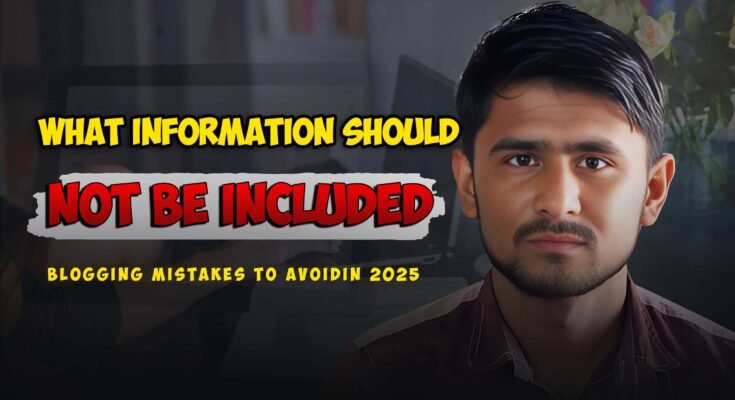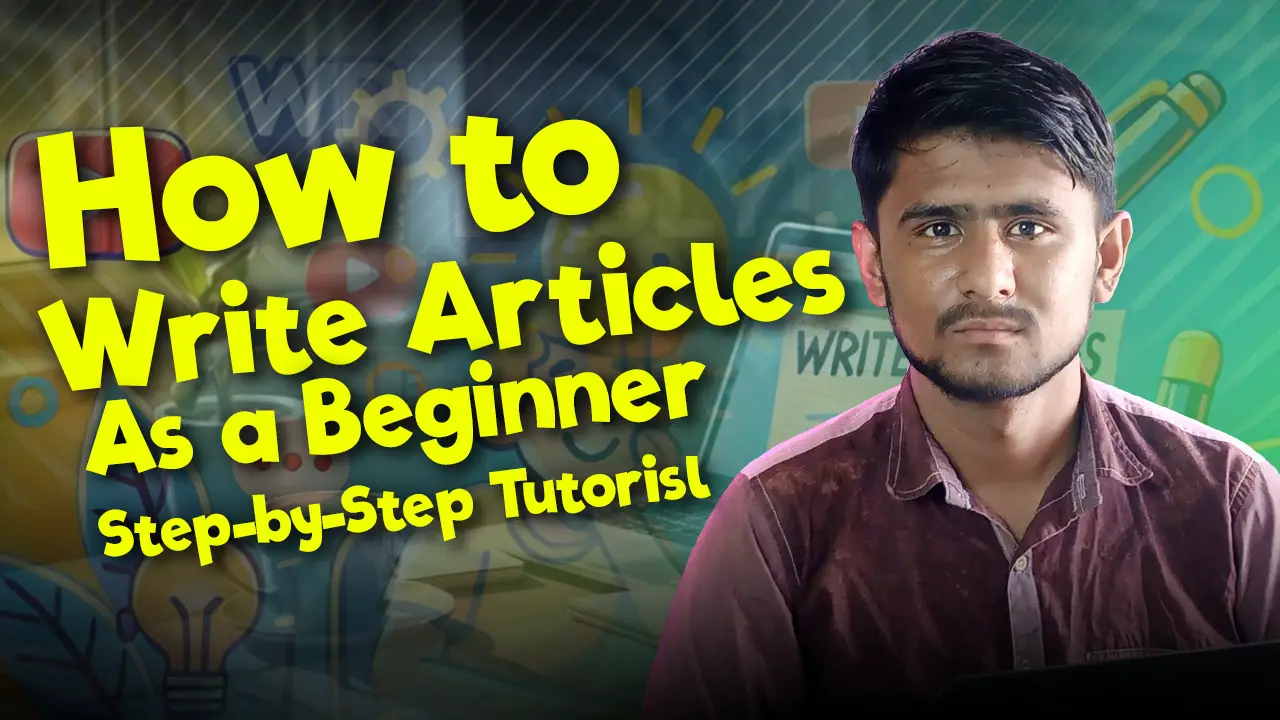Blogging is now a common method for people to communicate their experiences, thoughts and information to the world. However, not all information is appropriate for an article on a blog. Knowing what information shouldn’t be published on your blog is as crucial as understanding what constitutes good content. This guide outlines the rules of blogging, and will help writers avoid the common mistakes that can damage their reputation privacy or cause legal trouble.
The Basics of Responsible Blogging
Blogging allows people to communicate on the internet. However the freedom that comes with blogging is also a the responsibility. Many new bloggers are unaware that there are certain kinds of information that need to remain secret. Being aware of what to not post on a blog can safeguard your readers and yourself from potential issues.
When people start blogging, they typically get excited about sharing all of their experiences. However, experienced bloggers are aware that certain information should be stored off-line. The rules of blogging include taking care of personal information, respecting others privacy, and staying clear of information that could harm others.
“I remember when I first started blogging, I shared way too much about my daily routine, including when I left home and returned. A fellow blogger pointed out this could be dangerous from a security perspective. That was an eye-opening moment for me about the importance of privacy,” writes a blogger friend who has learned this lesson by accident.
What is Blog Rules?
Blog rules are guidelines that allow bloggers to create content in a responsible manner. The rules aren’t necessarily documented, however they are an unspoken code for professional bloggers. These rules help safeguard both the blogger and the readers.

The most fundamental blog rules are:
- Respecting copyright laws
- Being sincere with readers
- Personal information is important to protect.
- Avoiding content that may be harmful or offensive.
- Disclosure of conflicts of interest
- Creating value for readers
Understanding the rules of blogging can help new bloggers avoid making common mistakes that can damage their reputations or cause others problems.
Personal Information That Should Not Be Included
One of the most common mistakes bloggers commit is to share excessive personal details. Although personal experiences can help make bloggers more likable, specific information must remain confidential for security and safety reasons.
Your Exact Location and Address
Bloggers should not divulge their address of residence, work location, or any other information that might assist someone in the real world. This is crucial for bloggers who grow in popularity because they could draw unwanted attention.
Instead of stating “I live at 123 Main Street,” bloggers may use their city or area in general terms if the location is relevant to the content they write about.
Financial Information
Financial information such as numbers for bank accounts particulars on income, investment details should not be published on blogs. The information may lead to the theft of your identity or even financial crime.
Even bloggers who are successful and blog about making money online must be cautious about the exact amount they make. They are able to provide general ranges of percentages or ranges rather than precise figures when they want to talk about their blogging earnings.
Children and Family Members’ Information
Bloggers must be extremely cautious when they write about their children or relatives. Details such as children’s names and routines, as well as schools must be kept confidential to ensure their privacy and safety.
“When I blog about parenting experiences, I never use my children’s real names or post recognizable photos of their faces. I use nicknames and share stories in a way that protects their identity while still being authentic,” says a blogger for parents who balances sharing stories while safeguarding their family.
Medical and Health Information
Personal health information must generally be kept secret unless you’re creating a health blog in which your experiences are relevant. However, you should consider what information is useful for users and what information might be considered to be personal.
Legal and Copyright Issues to Avoid
Legal issues may arise when bloggers do not comprehend copyright laws or other legal restrictions. This can result in costly lawsuits, or harm to the blogger’s image.
Copyrighted Material Without Permission
Making use of videos, images or any other content created by someone else in violation of their rights is a frequent blogging error. This includes:

- Photos retrieved via Google search
- Song lyrics
- Long quotations from articles or books
- Screenshots from TV and movies. shows
Bloggers should instead make use of royalty-free images, or create the content themselves or correctly cite short quotations without attribution to the source.
Defamatory Content
Blogs shouldn’t contain false assertions that harm a person’s reputation. This means making allegations without evidence or writing negative reviews with factual errors, not opinions.
For instance it is possible to write “Restaurant X serves spoiled food” without a solid evidence can be defamatory. On the other hand “I didn’t enjoy my meal at Restaurant X” is an opinion that is safer to say.
Confidential Information received from employers
Many bloggers have regular jobs. It’s crucial not to divulge private information with their employers. This includes:
- Information from within the company
- Information on clients
- Services or products that have not been released
- Conversations with colleagues in private
Sharing such information could be in violation of employment contracts and result in job loss or even legal action.
Ethical Considerations in Blogging
The practice of ethical blogging can build trust with readers and can help to build a reputation for good in blog communities. Recognizing what constitutes an article unworthy from a moral perspective is vital.
Undisclosed Conflicts of Interest
Bloggers need to be honest regarding their relationships with product or brand names they reference. The failure to disclose affiliate or sponsored content is both illegal and illegal in a number of countries.
“I once followed a blogger who recommended products with great enthusiasm. Later I discovered they were getting paid for these recommendations without disclosure. I immediately unsubscribed and lost all trust in their content,” says a subscriber who believes in transparency.
Misleading or False Information
Blogs shouldn’t include information that the author knows to be incorrect or that has not been properly researched. This can damage credibility and cause harm to readers who rely on inaccurate information.
For instance a food blogger should not make claims about a recipe’s benefits for health without conducting evidence to support the assertions, and a financial blogger shouldn’t offer specific investment suggestions without the appropriate credentials.
The stealing of content from other bloggers
Copying material from blogs that are not yours and then presenting it as original content is plagiarism. This includes:
- Directly copying text
- Utilising ideas without credit
- Reproducing images without authorization
- Publishing similar content, with minor modifications
Content that is original and unique will always be valued more than copied material by both readers as well as search engines.
Content Quality Issues to Avoid
What is the reason for a poor blog post can be boiled down to issues with quality. Insufficiently-written content does not bring value to readers and may damage a blog’s image and the search engine ranking.
Keyword Stuffing and Poor SEO Practices
The past was when certain bloggers would use unnaturally repeated keywords throughout their articles in order to be more prominent on search engine results. This practice, known as keyword stuffing, is now detrimental rather than aids SEO efforts.
Modern search engines search for semantic SEO meaning they are aware of the meaning and the context of the content, rather than simply counting keywords. Utilizing similar phrases (LSI words) naturally throughout a piece can be more effective than forcing the same word repeatedly.
The 80/20 Rule for Blogging
How do you define the rule of 80/20 for blogging? The guidelines suggest that 80percent of blog content should be informative for readers, and only 20% of blog posts should be advertising. Blogs that sell products or services but do not provide valuable information are likely to be quickly lost to readers.
“When I first started my blog, I was too focused on monetization. Every post felt like a sales pitch. My traffic actually grew when I shifted to providing helpful content most of the time, with occasional promotional posts,” Explains an author who learned how to keep a balance between both monetization and value.
Small Content with Little Value
The short posts that do not fully discuss a subject provide no benefit to readers. Although not every piece of content has to be a thousand words, every piece of content must provide the most complete information about its subject.
What should the length of a blog have? There’s no absolute guideline, but the most successful blog posts have minimum 300 to 500 words and in-depth posts typically reaching 1500-2500 words or more. The trick is to give complete information, not just reaching a certain word count.
Blog Formatting and Structure Mistakes
The structure and format of blog posts can affect the the readability and user experience. Incorrect formatting could turn readers away, even if they are able to benefit from the information.
Walls of Text Without Breaks
Long paragraphs that do not break up make it challenging to understand, particularly on mobile devices. Blog posts should include:
- Short paragraphs (2-4 sentences)
- Subheadings and headings
- Bullet points and lists with numbers
- White space in between sections
These techniques of formatting allow content to be more easily scannable and more readable.
Should Blogs Have Pictures?
Yes, blogs should include images! Visual elements can break down text and make the posts more enjoyable. Images can be used to help illustrate concepts, provide examples, or enhance the look of a page.
However, bloggers must be cautious about:
- Utilise images that they have the right to make use of
- Make sure you optimize image sizes for rapid loading
- Add alt text for accessibility
- Select relevant images that will provide value
A blog that does not have any visual elements is often unprofessional and outdated.
What is the Best Format for a Blog Post?
The best style for a blog post usually comprises:
- An attention-grabbing headline
- An introduction that grabs the attention of readers.
- Clear headings that help organize the contents
- Short paragraphs that contain one central idea per
- Images or videos
- The conclusion summarizes the most important aspects
- A call to act for readers
This structure assists readers in finding information quickly and comprehend the information easily.
Monetization Concerns and Realistic Expectations
Many bloggers start blogs with the intention to earn money, however unrealistic expectations can result in disappointment and poor content selections.
How Much Blogger Pays for 1,000 Views?
Earnings from blogging vary depending on the niche, audiences, and monetization strategies. There’s no one standard price for 1,000 views, since the amount of money earned depends on:
- Ad networks that are utilized
- Audience demographics
- Click-through rates
- Affiliate partnerships
- Direct product sales
The new bloggers must realize that making a significant income takes patience and a constant effort. The most successful bloggers take months or years working on content before they see significant returns.
How Long Does It Take to Make $1000 Per Month Blogging?
For the majority of bloggers, earning $1000 per month will take minimum 6-12 months of steady work. It is often more. The factors that impact timeframes include:
- The frequency of publishing
- Content quality
- Niche competitiveness
- Strategy for Monetization
- Marketing strategies
“It took me almost two years of consistent blogging before I hit the $1000 per month mark. Anyone promising quick riches from blogging is probably trying to sell you something,” writes the blogger who earns an income full-time from their blog.
What is the Minimum Earnings for a Blogger?
There is no minimum income for bloggers. A lot of blogs earn nothing or only a small amount, especially at the beginning. Even blogs with a long history can earn various income levels, based on their subject matter and audience size.
Instead of focusing on a minimum wage, the newest bloggers should be focusing on:
- The creation of a high-quality library of content
- The growth of their audience
- Building expertise in their area
- Making multiple streams of income
Successful blogging requires patience and perseverance.
Best Practices for Safe and Responsible Blogging
Knowing the rules and regulations of blogging allows you to produce content that’s both successful and accountable. These rules protect bloggers and their followers.
What Are the Do’s and Don’ts for Safe and Responsible Blogging?
The rules of blogging are:
- Making new and valuable content
- Being open regarding sponsorships
- Respecting intellectual property and copyright
- Protection of privacy for readers
- Engaging positively in comments
- Fact-checking and checking information
The do’s and don’ts of blogging are:
- Sharing excessive personal details
- Making use of content created by others without consent
- Falsely claiming that products are available
- Publishing defamatory statements
- Engaging in online debates
- Disregarding feedback from the audience
How Can I Be Safe While Blogging?
Bloggers can safeguard themselves by:
- Using a P.O. box as a house address
- Create distinct email addresses for blogging
- Be careful when sharing information about your location
- Making use of robust passwords, and two factor authentication
- Understanding the privacy settings of blogs
- Looking at the long-term implications of the things they have in common
“Safety became a priority for me after another blogger had a stalking incident. I reviewed all my old posts and removed any information that could help someone find my exact location,” describes an Lifestyle blogger that takes security online very seriously.
What Are the Three Disadvantages of Blog?
While blogging is a great way to gain a lot of benefits but there are some drawbacks to be aware of:
- Privacy issues If the information is posted online it may be difficult to completely erase it.
- Time commitment Making consistent, high-quality content requires a lot of work and time.
- The potential for negativity Public writing exposes bloggers to criticism, and sometimes even arousal.
Knowing these disadvantages can help bloggers make informed choices regarding what they post online. 1. 5..
Special Considerations for Different Blog Types
Different kinds of blogs have particular concerns regarding what content should not be included.
Can I Blog About Everything?
Although bloggers are able to choose a variety of topics, focusing on a area of expertise is usually better than trying to write about all things. People typically read blogs for certain types of material and search engines generally place more specialized websites higher for relevant queries.
Furthermore, certain topics need special attention:
- Personal financial blogs should not make specific investment recommendations unless trained
- Blogs for parents must respect the privacy of children.
- Blogs about health should contain disclaimers regarding medical information
- The travel blogs must be cautious when revealing information about the location
Are There Any Dangers to Blogging?
Yes, blogging is a risk. possible dangers for writers to know about:
- Security risk by giving out too much of personal data
- Issues with legality stemming from copyright violations or defamation
- online intimidation from trolls and disagreeing readers
- Career impacts if employers discover controversial content
- Security issues in the event that blogs reveal the location of valuable items or locations
Knowing these risks can help bloggers make educated choices about their posts.
Should I Post on My Blog Everyday?
Many bloggers don’t need to write daily. The quality of content matters more than the quantity and the posting schedule should be based on:
- Time available for creating high-quality content
- Expectations for niches (news blogs may require regular updates)
- Audience preferences
- Personal writing skills
Consistently posting on a sensible timetable (whether it’s bi-weekly or weekly or even monthly) is generally more effective than beginning with daily posts and burning through two.
Technical and Legal Protections for Bloggers
Beyond content-related decisions bloggers must implement legal and technical protections.
Privacy Policy for Bloggers
Blogs should have the following privacy policies:
- What data is gathered from the visitors?
- What information is used to make decisions
- If third individuals have access to information
- Information rights of visitors with respect to their personal information
This is not only a good practice, but it’s also an obligation of law across many countries such as Europe, the United States and Europe.
Should I Date My Blog Posts?
The blog posts of a dating site have many benefits:
- Informs the reader about how up-to-date the information is
- Helps organize content
- Gives context for sensitive time-sensitive information
- Improve the effectiveness of search engines
But, some content may benefit from not having an enticingly shown date if it does not change often.
Can You Keep a Blog Private?
Yes, the majority of blogging platforms have the following options for privacy:
- Password security for all blogs
- Privateizing specific posts
- Create content that is only available to members
- Utilising noindex tags to block indexing engines from displaying the content
Private blogs can be helpful for:
- Journals of personal journals
- Family news
- Content shared with certain communities
- Test content prior to public release
“I keep a private blog for family updates with photos of my children, and a separate public blog for my professional content. This separation helps me share with loved ones while maintaining privacy,” blogger explains who juggles private and public content.
Conclusion: Creating Valuable Blog Content Responsibly
Knowing what information shouldn’t be included in blogs will help writers write content that is both relevant and ethical. By avoiding personal information that may compromise security while respecting legal and copyright restrictions and ensuring ethical standards and insisting on quality content blogs, writers can create effective platforms that benefit them and their readers.
Blogging is a fantastic way to share information, communicate with others, and earn money. But the opportunities are not without obligations. Bloggers who are successful have found the ideal equilibrium between sharing and not having content to make connections with their followers while safeguarding privacy and adhering to professional standards.
Be aware that blogging can be a process of learning. Many successful bloggers have made mistakes early in their careers, but they reformed their strategies after they had acquired experience. Beginning with these guidelines and learning about best techniques novice bloggers can avoid the common pitfalls and produce content that is able to stand against the test of time.
Whatever your goals for blogging placing the highest value on readership while observing essential boundaries will allow you to develop a blog that is successful over the long run. It’s not about what information you should not put on the blog but how do you share the correct information in ways that benefit your readers, while also safeguarding yourself and others.



